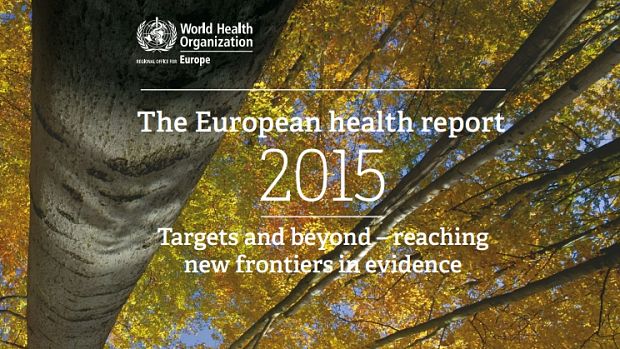Europeans may die earlier in age than grandparents
UK – World Health Organisation says smoking, drinking and obesity must be curbed in continent using tactics such as
sugar tax. Young people across Europe may die at an earlier age than their grandparents if the region fails to curb smoking, drinking and obesity, the World Health Organisation has warned.
Sugar taxes are among the measures governments should consider, says the European regional office of WHO, along with a minimum price for alcohol and subsidies on fruit and vegetables. “Certainly those in business know that price always works. Price has an impact, negatively or positively,” said João Breda, WHO Europe’s programme manager for nutrition, physical activity and obesity.
“If you accept that too much sugar is bad for health – and we know that because WHO issued revised recommendations last year, where we say no more than 10% of sugar in your total calories, and it is even more advisable to limit your sugar to 5% – then countries may consider using what they find more effective to address this issue of sugar consumption. The issue of price can have a role to play and should not be seen as taboo.”
The UK has so far declined to consider a sugar tax, in spite of calls from public health campaigners and the TV chef Jamie Oliver to introduce one on sugary drinks. Public Health England is looking into ways to bring down the UK’s high sugar consumption and is due to report before Christmas.
Europe has the highest rates of smoking and drinking of any region in the world and is second for obesity after the Americas, according to the latest European health report from the WHO.
Across the 53-member WHO European region, 30% of the population smokes, the equivalent of 11 litres of pure alcohol is drunk per person per year and 59% of the population overweight or obese. The UK is above average on obesity, with 63.4% overweight or obese in 2014. Smoking rates were down to 19% in 2013 but drinking is close to the European average, at 10.6 litres of pure alcohol per person in 2011.
The report shows a steady increase in life expectancy in Europe. The drop in deaths from heart disease, cancer, diabetes and chronic respiratory disease is in line with the WHO’s goal of an annual decline of 1.5% each year until 2020. But most of the progress has been in countries that have been lagging a long way behind the rest of Europe, such as Moldova, Kazakhstan, Ukraine and the Russian Federation.
“Progress in the regional average is due almost entirely to improvements in countries that started out with the highest levels of premature mortality,” says the report. Eastern Europe has also brought down the death rates from accidents and injuries.
However, Dr Zsuzsanna Jakab, WHO regional director for Europe said: “There is a very real risk that these gains will be lost if smoking and alcohol consumption continue at the current rate. This is especially relevant to young people, who may not live as long as their grandparents.”
Europeans were “the world champions” of smoking and drinking, said Dr Claudia Stein, director of the division of information, evidence, research and innovation for WHO Europe. With obesity, those lifestyle habits could reverse all the gains. “The next generation may live shorter lives than we do,” she said. “That is not acceptable.”
There are big variations between the 53 countries, with a gap in life expectancy for men of 22 years between those who live in Spain and those who live in Turkmenistan. When both sexes are taken into account, the gap between best and worst life expectancy is 11 years.
Among the 15 EU nations, women in the UK have shorter lives than average. Not all the figures are complete, because they depend on governments providing the data, but in 2010, women in the UK had a life expectancy of 80.7 years, while the longest lived were Spanish women at 85.4 years.
The report also attempts to measure wellbeing but it is a work in progress. Education, housing, sanitation and jobs are all part of life satisfaction, which correlates with life expectancy, but how much money people have is not the main issue.
Happiness is an income of $10,000, according to the WHO: people’s sense of wellbeing is undermined if they earn less but does not increase if they earn more than that. “We do not quite understand why this is,” said Stein. “Why do people in some poorer countries report higher satisfaction than in countries where incomes are higher?”


Leave a Comment
You must be logged in to post a comment.